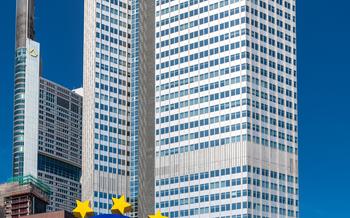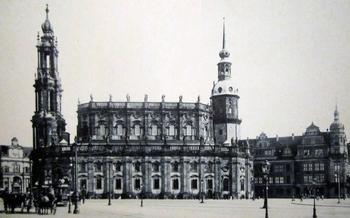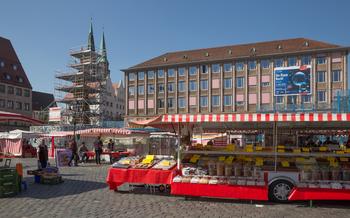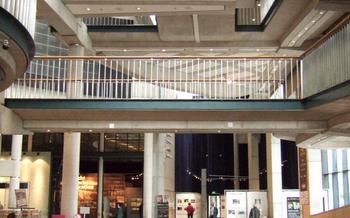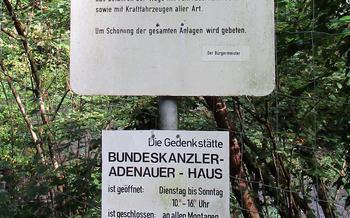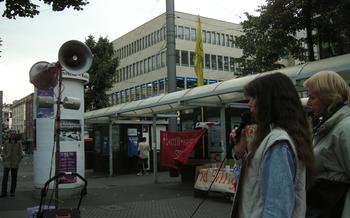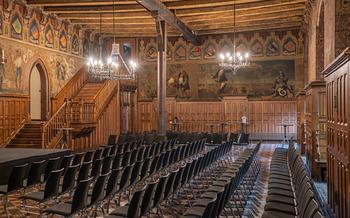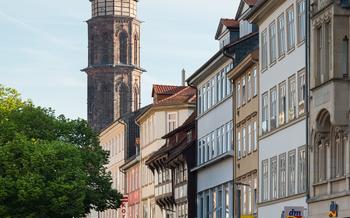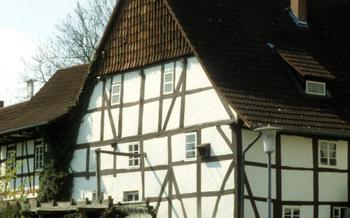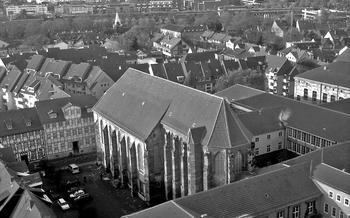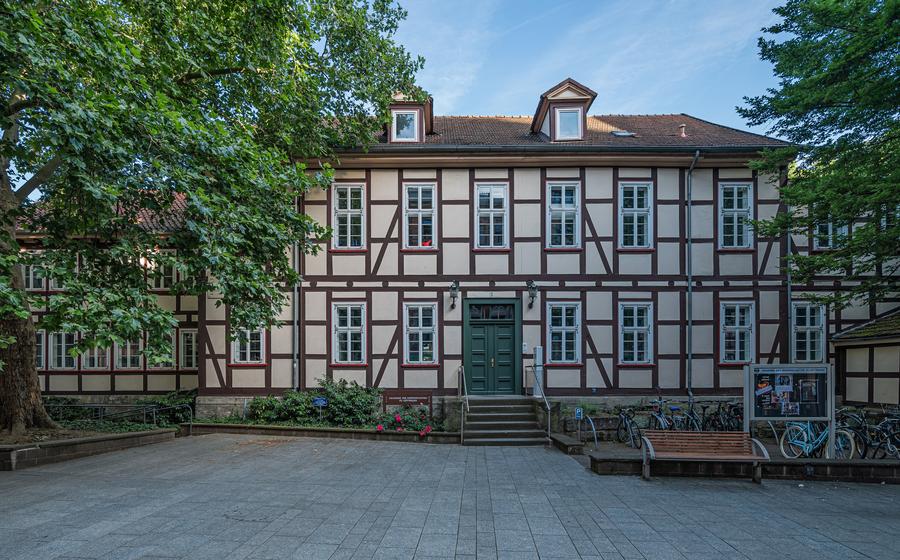
Göttingen Academy of Sciences and Humanities
- Historical Overview and Significance: The Göttingen Academy of Sciences and Humanities, nestled in the historic city of Göttingen, Germany, is a distinguished institution dedicated to advancing knowledge and fostering academic excellence. Founded in 1751, the academy has played a pivotal role in shaping the landscape of German academia for over two and a half centuries. Throughout its illustrious history, the academy has served as a hub for renowned scholars, scientists, and humanists, contributing significantly to the intellectual and cultural development of the nation. Its unwavering commitment to promoting interdisciplinary research, cultivating international collaborations, and disseminating knowledge has earned the academy a reputation as a leading center for academic inquiry and intellectual exchange.
- Location and Accessibility
- Architecture and History
- Working Groups and Projects:
- Public Lectures and Events
- Membership and Fellowships
- Collaborations and Partnerships: The Göttingen Academy of Sciences and Humanities maintains strong collaborations and partnerships with various academic institutions and organizations both within Germany and internationally. These collaborations foster interdisciplinary research, exchange of ideas, and joint projects. The academy works closely with universities, research centers, and scholarly societies to advance knowledge in different fields. Through these partnerships, the academy can leverage its resources, expertise, and networks to contribute to broader scientific endeavors and make a significant impact on the global research landscape.
- Digitalization and Online Resources
- Educational Programs
- Visiting the Academy
- Research Fellowships and Grants
- Volunteering and Internships
- Insider Tip: The Basement of Treasures
Historical Overview and Significance: The Göttingen Academy of Sciences and Humanities, nestled in the historic city of Göttingen, Germany, is a distinguished institution dedicated to advancing knowledge and fostering academic excellence. Founded in 1751, the academy has played a pivotal role in shaping the landscape of German academia for over two and a half centuries. Throughout its illustrious history, the academy has served as a hub for renowned scholars, scientists, and humanists, contributing significantly to the intellectual and cultural development of the nation. Its unwavering commitment to promoting interdisciplinary research, cultivating international collaborations, and disseminating knowledge has earned the academy a reputation as a leading center for academic inquiry and intellectual exchange.
Location and Accessibility
The Göttingen Academy of Sciences and Humanities is conveniently located in the heart of Göttingen, a charming university town in central Germany. The academy's address is Akademie der Wissenschaften zu Göttingen, Theaterplatz 1, 37073 Göttingen.
Reaching the academy is a breeze, thanks to the city's excellent public transportation network. Visitors can take bus lines 1, 2, 3, or 10 and get off at the stop called "Stadthalle/Stadttheater". From there, it's just a short walk to the academy building.
For those arriving by car, there are several parking options nearby. The academy has its car park, but it's usually reserved for staff and visitors with disabilities. Public parking is available on Theaterplatz and the surrounding streets.
The academy is committed to accessibility for all visitors. The building is wheelchair accessible, and there are elevators to all floors. Visitors with disabilities can also request assistance from the academy staff.
Architecture and History
The Göttingen Academy of Sciences and Humanities is housed in a magnificent neoclassical building located in the heart of the city. Designed by renowned architect Paul Wolff, the academy building was constructed between 1823 and 1837, reflecting the architectural style of the early 19th century. Its grand façade features a symmetrical design with a central portico supported by six Doric columns, evoking a sense of classical elegance and grandeur. The academy building has undergone several renovations and expansions over the years to accommodate its growing collection and activities. In 1901, a new wing was added to the building, providing additional space for administrative offices and meeting rooms. The academy building's rich history and architectural significance make it a landmark in Göttingen, symbolizing the city's commitment to scholarship and intellectual pursuits.
Working Groups and Projects:
The Göttingen Academy of Sciences and Humanities actively engages in various working groups and projects that drive its research agenda forward. These groups bring together scholars from different disciplines to collaborate on specific research topics or projects. Some of the current working groups include:
-
The Göttingen Institute for Advanced Study (GIAS): GIAS is an interdisciplinary research institute that promotes cutting-edge research and fosters collaboration between scholars from different fields. It supports research projects that explore complex societal challenges and contribute to innovative solutions.
-
The Göttingen Centre for Digital Humanities (GCDH): GCDH focuses on the application of digital technologies to humanities research. It brings together scholars from fields such as computer science, history, and linguistics to develop new methods and tools for analyzing and interpreting digital data.
-
The Göttingen Centre for International and Comparative Law (GICL): GICL promotes research on international and comparative law, with a focus on the European Union and its legal framework. It conducts comparative studies of legal systems and examines the impact of international law on national legal systems.
-
The Göttingen Centre for Sustainable Development (GCSD): GCSD addresses global challenges related to sustainable development. It brings together researchers from natural and social sciences to study the interconnections between environmental, economic, and social factors that influence sustainability.
These working groups and projects exemplify the academy's commitment to interdisciplinary research and collaboration, fostering a dynamic and intellectually stimulating environment for its members and visiting scholars.
Public Lectures and Events
The Göttingen Academy of Sciences and Humanities organizes a diverse range of public lectures, seminars, and events throughout the year. These events provide a platform for scholars, researchers, and experts from various fields to share their knowledge and insights with the wider community. From thought-provoking lectures on cutting-edge research to engaging discussions on current societal issues, the academy's events offer a unique opportunity for the public to engage with academia and gain new perspectives.
Visitors are welcome to attend these events, which are typically held in the academy's historic auditorium or other suitable venues. Admission is usually free, but registration may be required for some events. To stay informed about upcoming events, visitors can check the academy's website or subscribe to the academy's newsletter.
Some of the regular events organized by the academy include:
- Academy Lectures: Renowned scholars from Germany and abroad are invited to present their research findings and insights on a wide range of topics.
- Colloquia and Seminars: These smaller-scale events provide a forum for researchers to present their work and receive feedback from colleagues and experts in the field.
- Public Forums and Discussions: These events bring together scholars, policymakers, and members of the public to discuss current societal issues and challenges.
- Exhibitions and Workshops: The academy occasionally hosts exhibitions showcasing its collections, research projects, or the work of individual scholars. Workshops are also organized to provide hands-on experience and training in specific research methods or topics.
By attending these public events, visitors can gain valuable insights into the latest research and developments in various academic disciplines, engage in thought-provoking discussions, and network with experts in their fields of interest.
Membership and Fellowships
The Göttingen Academy of Sciences and Humanities offers various types of membership, recognizing outstanding contributions to academia and fostering interdisciplinary exchange. Regular membership is reserved for renowned scholars and researchers who have made significant contributions to their respective fields. Corresponding membership is extended to distinguished scholars from other institutions or countries who collaborate with the academy on research projects or initiatives. Honorary membership is a prestigious distinction bestowed upon individuals who have made exceptional contributions to the advancement of knowledge and the academy's mission.
The academy's selection process for new members is rigorous and highly competitive. Candidates for regular membership are nominated by current members and undergo a thorough evaluation by the academy's membership committee. Corresponding and honorary members are nominated by the academy's governing board and approved by the general assembly.
Membership in the Göttingen Academy of Sciences and Humanities carries several benefits, including the opportunity to participate in interdisciplinary research projects, attend conferences and workshops, publish in the academy's journals, and access the academy's extensive library and research resources. Members also have the privilege of using the academy's title and logo in their professional communications.
Collaborations and Partnerships: The Göttingen Academy of Sciences and Humanities maintains strong collaborations and partnerships with various academic institutions and organizations both within Germany and internationally. These collaborations foster interdisciplinary research, exchange of ideas, and joint projects. The academy works closely with universities, research centers, and scholarly societies to advance knowledge in different fields. Through these partnerships, the academy can leverage its resources, expertise, and networks to contribute to broader scientific endeavors and make a significant impact on the global research landscape.
Digitalization and Online Resources
The Göttingen Academy of Sciences and Humanities has embraced the digital age, recognizing the importance of making its vast collections and resources accessible to a global audience. Through its dedicated digitalization initiatives, the academy is preserving its intellectual heritage and expanding its reach beyond the physical confines of its walls.
Visitors to the academy's website can explore a treasure trove of digital resources, including virtual exhibitions, databases, and digital archives. These online platforms showcase the academy's diverse collections, from rare manuscripts and historical documents to scientific specimens and works of art. The academy's digitalization efforts also extend to its publications, with many academic journals and monographs now available online, providing scholars and researchers with convenient access to the latest research findings.
By embracing digitalization, the Göttingen Academy of Sciences and Humanities is ensuring that its rich legacy of scholarship and research continues to inspire and inform future generations of academics and researchers. The academy's online resources are a valuable tool for anyone interested in exploring the frontiers of knowledge and delving into the intellectual treasures of one of Germany's most prestigious academic institutions.
Educational Programs
The Göttingen Academy of Sciences and Humanities offers a variety of educational programs and workshops designed to promote scholarly exchange and foster intellectual growth. These programs provide students, researchers, and the general public with opportunities to engage with leading experts in various fields, delve into cutting-edge research, and contribute to the advancement of knowledge.
One of the academy's flagship programs is the Summer School in the Humanities, which brings together students from around the world for intensive courses on a wide range of topics, from ancient history to modern literature. The summer school offers a unique opportunity for students to learn from renowned scholars, engage in interdisciplinary discussions, and build lasting connections with peers from diverse backgrounds.
The academy also organizes workshops, conferences, and seminars throughout the year, covering a broad spectrum of subjects. These events provide a platform for scholars to present their research findings, exchange ideas, and collaborate on new projects. Participants have the chance to engage in lively debates, learn about the latest developments in their field, and network with colleagues from different institutions.
The academy's educational programs are designed to foster intellectual curiosity, promote critical thinking, and encourage collaboration. By providing a vibrant and stimulating learning environment, the academy contributes to the development of future scholars and researchers and helps to shape the intellectual discourse of tomorrow.
Visiting the Academy
The Göttingen Academy of Sciences and Humanities welcomes visitors to explore its historic building and learn about its ongoing research and projects. The academy is open to the public during regular business hours, and admission is free of charge. Guided tours are available upon request and provide a fascinating glimpse into the academy's history, architecture, and collections.
Visitors can stroll through the academy's elegant courtyards, admire its impressive collection of art and artifacts, and delve into its rich library. Special exhibitions and events are often held at the academy, showcasing the latest research findings and offering opportunities for visitors to engage with scholars and experts in various fields.
Whether you are a history buff, a science enthusiast, or simply curious about the world of academia, a visit to the Göttingen Academy of Sciences and Humanities is a rewarding experience. Take advantage of the opportunity to explore this treasure trove of knowledge and discover the many ways in which the academy contributes to the advancement of scholarship and culture in Germany and beyond.
Research Fellowships and Grants
The Göttingen Academy of Sciences and Humanities offers a range of research fellowships and grants to support scholars and researchers in their academic pursuits. These opportunities are designed to attract talented individuals from various disciplines and provide them with the resources and support they need to conduct groundbreaking research.
The academy's fellowship programs are highly competitive and offer generous funding packages, including a monthly stipend, research expenses, and travel grants. Fellowships are typically awarded for a period of one to three years and provide researchers with the freedom to pursue their research interests in a supportive and stimulating environment.
To be eligible for a fellowship, applicants must hold a doctorate or equivalent qualification and demonstrate a strong track record of research excellence. The selection process is highly competitive, and candidates are evaluated based on their academic achievements, research proposal, and potential to contribute to the academy's research community.
The academy also offers a variety of grants to support specific research projects or initiatives. These grants are typically smaller in size than fellowships and are awarded for a shorter duration. They are open to researchers at all career stages and can be used to cover expenses such as research materials, equipment, or travel.
For more information on the academy's research fellowships and grants, please visit their website or contact the academy's research office.
Volunteering and Internships
The Göttingen Academy of Sciences and Humanities offers a variety of volunteering and internship opportunities for individuals passionate about academia and research. Volunteers play a crucial role in supporting the academy's diverse activities, from assisting with event organization and library maintenance to contributing to research projects. Internships, on the other hand, provide a unique opportunity for students and recent graduates to gain hands-on experience in a research environment and contribute to the academy's ongoing work.
Volunteers and interns at the academy have the chance to work closely with renowned scholars and researchers, participate in exciting projects, and gain valuable insights into the inner workings of a prestigious academic institution. They also have the opportunity to network with other like-minded individuals and contribute to the vibrant intellectual community of Göttingen. The academy values the contributions of its volunteers and interns and provides them with a supportive and enriching environment to learn and grow.
Insider Tip: The Basement of Treasures
Venture beyond the grand halls and libraries of the Göttingen Academy and descend into the depths of its basement. Here, a hidden treasure trove awaits—a vast collection of scientific instruments, models, and artifacts that tell the story of centuries of groundbreaking research. From intricate astrolabes to early microscopes, these relics offer a tangible glimpse into the minds and methods of the academy's illustrious members. Don't miss this unique opportunity to explore the fascinating history of science and innovation up close.
